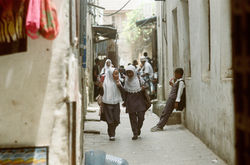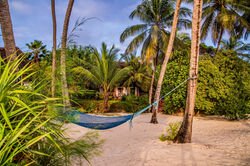
ZANZIBAR
Zanzibar is an insular autonomous region of Tanzania.
It is composed of the Zanzibar Archipelago in the Indian Ocean, 25–50 kilometers (16–31 mi) off the coast of the mainland, and consists of many small islands and two large ones: Unguja (the main island, referred to informally as Zanzibar) and Pemba Island.
The capital is Zanzibar City, located on the island of Unguja.
Its historic center, Stone Town, is a World Heritage Site.
 |  |
|---|---|
 |  |
 |
CULTURE
While Zanzibar is over 90% Muslim (mainly Sunni but including many minorities as well), there are also different Christian sects, Hindu and other, smaller religions represented on the island.
Zanzibar's main industries are spices, raffia and tourism.
In particular, the islands produce cloves, nutmeg, cinnamon, and black pepper. For this reason, the Zanzibar Archipelago, together with Tanzania's Mafia Island, are sometimes referred to locally as the "Spice Islands"
 |  |
|---|---|
 |  |
 |

CLIMATE
Zanzibar is a few degrees south of the equator and enjoys a very tropical climate. The average daytime high is between 28°C and 32°C and the night-time lows are between 20°C and 25°C.
Temperature wise – this island is an all-year-round winner.
February is very hot and very humid and March to May are the wettest months.
 |  |
|---|---|
 |  |






language
Zanzibaris speak Swahili (Kiswahili), a Bantu language that is extensively spoken in the African Great Lakes region.
Swahili is the de facto national and official language of Tanzania. Many local residents also speak Arabic, English, Italian and French. The dialect of Swahili spoken in Zanzibar is called.
Basic Swahili Phrases for Travelers
Hello: jambo/ hujambo/ salama
How are you?: habari gani
Fine (response): nzuri
Goodbye: kwa heri/ kwa herini
See you later: tutaonana
Nice to meet you: nafurahi kukuona
Goodnight: lala salama
 |  |  |
|---|---|---|
 |  |
vISAS













